- Home
- James Phelan
Red Ice
Red Ice Read online
Red Ice
A Lachlan Fox Thriller
James Phelan
Copyright
Diversion Books
A Division of Diversion Publishing Corp.
443 Park Avenue South, Suite 1008
New York, NY 10016
www.DiversionBooks.com
Copyright © 2010 by James Phelan
All rights reserved, including the right to reproduce this book or portions thereof in any form whatsoever.
This is a work of fiction. Names, characters, places and incidents either are the product of the author’s imagination or are used fictitiously. Any resemblance to actual persons, living or dead, events or locales is entirely coincidental.
For more information, email [email protected]
First Diversion Books edition April 2014
ISBN: 978-1-62681-269-7
More from James Phelan
Fox Hunt
Patriot Act
Blood Oil
LiquidGold
Red Ice
For Tas Phelan
Authors Note
In 1867 the United States and Russia signed a treaty. The signatories were William H Seward, US Secretary of State, and Eduard de Stoeckl, Russian Ambassador to the United States. The document contained the phrase: “His Majesty the Emperor of all the Russias agrees to cede to the United States, by this convention, immediately upon the exchange of the ratifications thereof, all the territory and dominion now possessed by his said Majesty on the continent of America and in the adjacent islands.” The US copy is available for viewing at the Library of Congress.
Many international treaties have amendments, some of them secret. A famous example of this is the 1939 Treaty of Non-Aggression between Germany and the Soviet Union, also known as the Molotov–Ribbentrop Pact, which had a secret amendment attached about how the two countries would divide up postwar Europe. In 1992, the document itself was declassified only after the dissolution of the Soviet Union. These treaty amendments are known as Secret Protocols.
Prologue
PARIS, FRANCE
It was his silence she could not stand. She heard him enter the house, pause for a moment in the adjoining dining room and then head straight for the drinks cabinet. When she’d first met him he’d gone through a bottle a day, sometimes more. After they were married, she’d got him down to just two or three measures and in ten years he’d gone from a mid-level foreign policy adviser in the Kremlin to ambassadorial postings in Portugal, Denmark and now France. If only he could understand the sound of her silent fury.
Katya was used to him not speaking, but today his silence made her angry. He was late, again. Important business. Important slut more like it. Silence. The bottle of Alsace riesling next to her was empty. She drained the last of her glass and wiped away a tear. It had taken this final straw in their relationship for her to understand how he must have felt to be stressed into drinking, lost to the numbing sensation that came with wanting to shut reality away.
He’d changed so much since they’d moved to this posting in Paris—she wondered if his mistress had noticed it, too. She thought she’d even seen her once, a lithe North African woman no more than twenty-five, as slim as she had been when they’d first met. That was years ago, when she’d had dreams and ambition and hunger, when she’d had the strength and belief to right this man. She’d dropped everything for him—and now this? Well, she had found someone else, too. It was the French way, oui, darling? And soon she would …
She heard the clink of bottles as he refilled his glass. Pig.
Even before the end of their first year here she’d been desperate to leave, but he’d always make her some promise so she’d stay. Then last month he’d started talking about going home, that there was big news he would soon share. News that would set him up in the party. They’d be made for life, he’d said. She suspected she knew this ‘news’—she’d taken that old diplomatic diary to him in the first place; the diary that had started what would be the search for … What? She rubbed her temples, trying not to think so much about how he turned everything around to make himself the hero. He was such a clichéd part of the modern Kremlin machine in that way, spinning every lie into a convenient truth.
She heard him place the glass on the antique dining table. She figured he’d reek of that slut. It was everything she could do not to get up off the couch and slap him across the face—that was the French way too, non, darling?
He was going to Shanghai this weekend to meet with the Russian leadership. That was new. His tickets were on his study desk upstairs, first class on Swiss Airlines, paid for out of their personal account—strange, because it was the first flight not covered by the state and they’d never flown first class, either on the state or out of their own pocket.
He didn’t tell her when he’d be back, just said, When Putin is ready to send me back. He’d stopped telling her all the details, stopped talking about the great new life they’d have. She knew why. He was going to offer it to his mistress instead. The life that he’d always promised her. No. It was not going to happen this way, not if she could help it. She’d seen a lawyer, taken steps to ensure she’d win. Her payday would come; she deserved it. Her hands wrung into tight fists and it was all she could do not to get up off the sofa and scream at him. She thought of a happier time.
This morning.
She’d met with her lover this morning, spoken to him again about leaving his wife. He was close to doing it … But maybe she’d appeared too desperate. She’d told him about the diary, and how it might help set them free. She looked at her Nokia on the table in front of her—she wanted to hear from him now, his deep French accent telling her everything would be all right. His calming voice reassuring her he’d be there for her no matter what happened when her husband went to the safe and discovered the diary was gone.
She could feel him now, moving towards her, but she didn’t care. No matter what her drunk husband said or did, there was a man a few neighbourhoods away in this very city who loved her, truly loved her.
Today, she’d sent him that old diary from the safe, and he had promised to follow her instructions about giving it to a third party, someone her husband could not possibly know about, a safekeeper to buy them the time to follow their love.
Her eyes flicked to the American cop drama on the television, its story so violent yet so prudish. In the reflection of the display cabinet she could see his shape, sensed him staring at her.
Did he know? About her rendezvous today? She’d often wondered if he had someone from his staff follow her, but she was always careful, changing trains and taxis and routes. She had a pre-paid SIM-card she used in her phone to call her lover and—and it was still in her mobile now! She looked at it sitting on the table, realising she’d been willing it to ring all day and night and now it was still there and he was home and it would probably ring. She felt a drop of sweat roll down her temple to her neck, a tear of panic. How to do this?
The television show cut to a commercial break. She leaned forwards, put her wine glass on the table and picked up the phone, knocking her glasses to the floor.
She unlocked the keypad and held down the off button.
The television flicked to a scene with emergency lights flashing in a rainy street and she almost thought it was the cop show again, but when she squinted she could make out that the news tickertape was in French and bodies were being taken out to waiting ambulances …
It was a familiar street-scape; the footage was coming from outside the Russian Embassy. She picked her glasses up off the floor and put them on.
Her mouth opened to speak—she was about to turn her head to her husband—when she saw him on the television screen. He was bein
g wheeled out to an ambulance—the blanket covering him had come loose from his face and the reporter on the scene said:
“It’s confirmed: the Russian Ambassador has been killed in an explosion at the embassy, two others are missing in the blast…”
The screen went blank. She felt the bile well up in the back of her throat. Her back and face were sweating.
The man in the house—the man standing behind her now with the remote in his hand, the man who she could see in the reflection of the television cabinet—was not her husband.
PART ONE
1
PARIS
Tyres screeched as the car swerved around him with a double blast of the horn and some familiar French swear words thrown from the open window for good measure.
“Welcome to Paris…” Fox said to himself, waiting for another car to zap by before crossing the cobbled street.
Lachlan Fox felt like a marked man, having already escaped death at the hands of lunatic drivers three, maybe four, times before the sun had come up today. If the Parisians had such weapons as the hatchback automobile when the Nazis were invading, they never would have needed bailing out by the Allies.
Early morning in Paris, a city that thrived on visitors’ enjoyment of its splendour, was proving more work than he’d imagined. It’d be easy to lay all blame on the maniac French drivers, but Fox knew that his rubbernecking at the scenery hadn’t helped. He’d let his guard down; having served as a special forces soldier in Iraq and Afghanistan and a frontline reporter on the War on Terror, he’d thought being a tourist should be easy.
At the next intersection he was stopped by a couple of uniformed cops who asked for his ID. He handed over his passport.
“Ah, Australian,” the shorter of the cops said, checking Fox’s passport was in order. “You ride kangaroos?”
“Funny,” Fox said. “You play with frogs?”
The cop looked to his partner, neither of them much appreciating the comeback.
Fox wasn’t surprised by the visible police presence since he’d arrived in the country. There had been an explosion at the Russian Embassy just a few days before, perhaps an accident in the gas main, but possibly terrorists—definitely terrorists, if you read the right-leaning news commentators who were calling for a crackdown on immigrants. Perhaps these cops took Fox’s unkempt dark hair, deep tan and three-day stubble for something more sinister than an Australian tourist wandering alone in the breaking dawn. Fox was used to arousing the interest of security types—he couldn’t remember the last time he hadn’t been stopped and screened for explosives at a commercial airport. He knew he had that ‘don’t fuck with me’ air, that gait of military training, eyes that reflected all too well some of what he’d seen and done in his thirty-three years, and a physique and stance that showed he could handle himself. Why hide it?
“What is your business in France?” the cop asked him.
“Holiday,” Fox said.
“Alone?”
“Are you asking me out?”
The cop wasn’t amused. He gave Fox’s passport to the younger, taller cop.
“What are you doing out so early?”
“Walking.”
“Where are you staying?”
“A friend’s house, out of town,” Fox said. “Giverny.”
“Long way from here.”
“My friend drove me in,” Fox said.
“Where is this friend?”
“Work.”
“Where is this work?”
“He’s a reporter at Le Figaro.”
“His name?” the cop asked.
Fox told him. Told him how he’d walked from Renard’s office on Boulevard Haussmann, down the Avenue de l’Opéra with its romantic nineteenth-century streetlamps. How a beautiful woman had jogged past, smiled at him, how he’d waved in reply—and a garbage truck rushed by in front of him. Look left, he’d reminded himself again as he crossed another street. Despite a couple of years living in New York as an investigative reporter specialising in covering the world’s flashpoints—rarely home, always somewhere overseas and dangerous—he was still used to a lifetime of vehicles driving on the left-hand side of the road. He gave the cop details and remained friendly.
The young French officer listened to him and watched, his right hand rested on his hip close to a holstered SIG Pro 2022, while his partner radioed in to check Fox’s details were bona fide.
“Okay, we’ll see,” the young cop said.
“Welcome to Paris,” Fox said again, this time under his breath.
“Sorry?” The policeman looked at Fox, hand still resting on the holstered pistol.
“I said: I sure love Paris,” Fox replied. Fucking French. When did they get guns?
A couple of minutes later Fox was handed back his passport.
“You are Lachlan Fox!” the short cop said. His previous sour expression had vanished, a cherubic grin in its place. He passed his mobile phone to his partner and pulled Fox in to have their photo taken. The younger cop was staring at them curiously and Fox looked down at the smiling Frenchman with his arm around his shoulder; a man who stank of stale coffee and garlic and cheap deodorant beamed up at him.
“This man, hero!” he said to his young partner, still in English for Fox’s sake. “Reporter—arrested Russian gangster Babich, yes? I read your stories!”
Fox nodded, and the other cop shrugged, motioned them to stand a little to the left for a better framed shot and snapped the picture.
“Thank you!” Fox’s new fan said, shaking his hand and then saluting.
Fox watched them walk off—the fan cop talking animatedly, trying to explain the situation to his buddy. They looked back, and waved. A bit further down the street he saw them stop a young Maghreb guy making him sit on the ground and empty his bag while they checked his papers.
Fox shook his head and continued on. Paris.
An inordinate number of buildings in this neighbourhood were masked by scaffolding. His journalist friend Renard had explained on the drive into town that morning the Parisian law requiring buildings to be cleaned every ten years. Tourism, Fox surmised, walking through the world’s most visited city, had made Paris into a romantic museum. He watched a sandblasting unit set up their crane, shifting their canvas canopy to protect passers-by from falling debris; the buildings to one side were a grimy brown with soot-coloured streaks, to the other side, creamy façades with glints of mica. They certainly looked after what they had around here. There was something soothing about watching a job being done that showed tangible results and it reminded him of his naively placed idealism when joining the military at eighteen.
Most Parisians were still asleep as he reached the Seine, stood on the Pont Royal and watched the sun rise over the roof of the Louvre. This was a place that never ended, it seemed, the city of light as eternal as the river flowing beneath him. He followed the Right Bank crossing at the Pont de la Concorde, and was almost run over as a double-decker tourist bus flashed past, a giant La Perla advert on the back with a woman in lingerie blowing him a kiss over her shoulder. Ah, Paris …
Ten minutes later Fox sat behind the wheel of a dark silver VW Golf. He had the window down and the summer breeze rolling in—but since he’d exited the rental agency at Invalides Metro station he’d felt uneasy driving. Small cars hurtled by as if at the hands of stunt drivers and his eyes were constantly shifting from the road to his mirrors, scanning for street signs as he weaved his way from the Seine.
He reached across for his iPhone as it bleeped. The screen showed a cheesy picture of his mate, Al Gammaldi. They’d been friends since high school, through the Defence Academy, and to this day Gammaldi continued tagging along on Fox’s adventures without ever really being asked. Well, maybe he’d had to twist his arm once or twice.
“Where are you?” Gammaldi asked, his voice gravelly from their late night together.
“Paris,” Fox said, using the speakerphone.
“Just picked up a hire car. You just wake up, lazy arse?”
“I don’t even know if I’ve slept yet,” Gammaldi replied. “When did you guys leave?”
“Early,” Fox said. It was dark when he’d left his friends behind at Renard’s farmhouse in Giverny. Renard had dropped him off in town before heading down to Dijon to chase a lead. He would be back in a few days, but he’d been good enough to let Fox have the run of the farmhouse for as long as he wanted. He’d stay at least until they wrapped their story together.
“God, that Renard can drink,” Gammaldi said. “I’m amazed he could drive this morning—he wouldn’t want to be pulled over and breathalysed.”
“Yeah, well,” Fox said, “I’m thinking that maybe they don’t have road rules in France.”
“I think Renard would break them for you if they did; you’re like his idol or something.”
“Yeah, right,” Fox said. He hadn’t told Gammaldi about the investigative reporting piece he was working on here with their friend. Really, he should have accompanied Renard to Dijon, but circumstances had changed; he had to play tourist.
“Where you headed?” Gammaldi asked.
“Grabbing us some supplies then coming back,” Fox said. The streetlamps blinked out as the sun hit the road. One thing in his favour was that he knew exactly where he was going and his military-trained memory for maps was excellent. Resembling a snail’s shell, the city’s twenty arrondissements arranged in the form of a clockwise spiral made navigating easy. Relatively easy. It was the one-way nature of the streets that bugged him. The Rue Cler market was only a couple of minutes away—if he could zigzag his way through the one-way mess. “Kate up yet?”

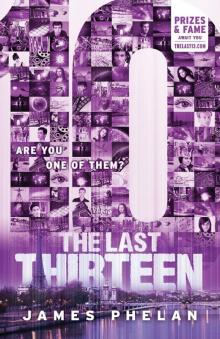 10
10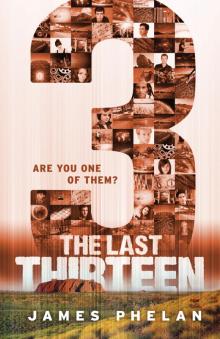 3
3 Survivor
Survivor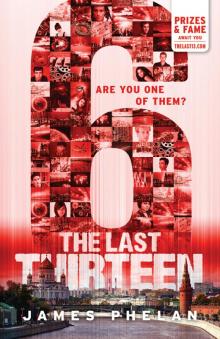 6
6 The Hunted
The Hunted Quarantine
Quarantine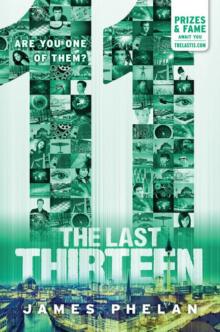 11
11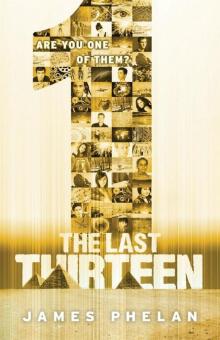 The Last Thirteen - 1
The Last Thirteen - 1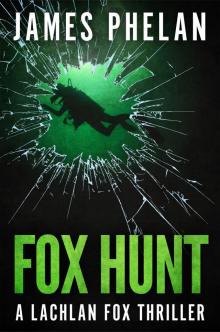 Fox Hunt
Fox Hunt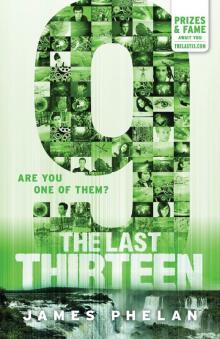 9
9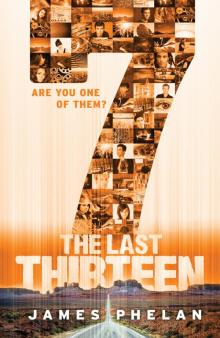 7
7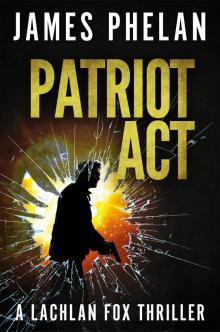 Patriot Act
Patriot Act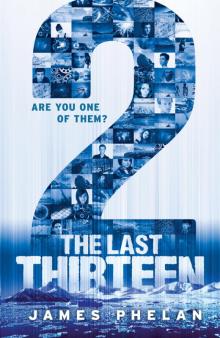 2
2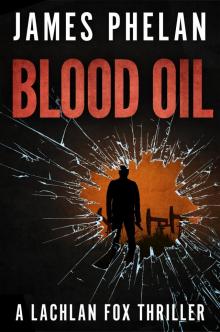 Blood Oil
Blood Oil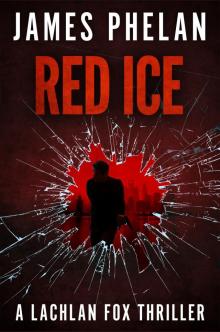 Red Ice
Red Ice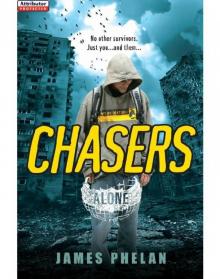 Chasers
Chasers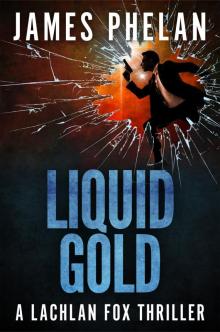 Liquid Gold
Liquid Gold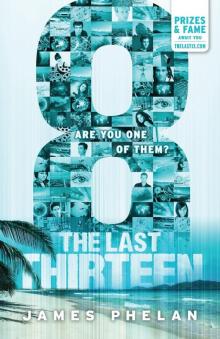 8
8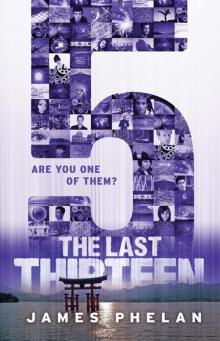 5
5 The Spy
The Spy Kill Switch
Kill Switch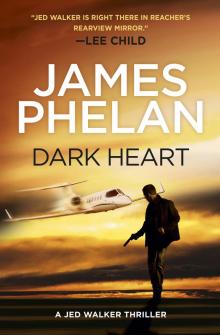 Dark Heart
Dark Heart